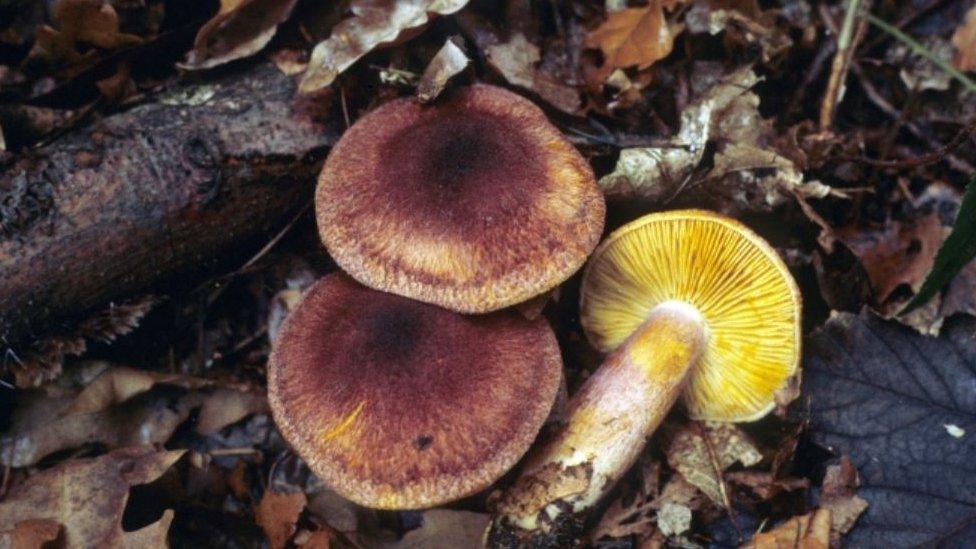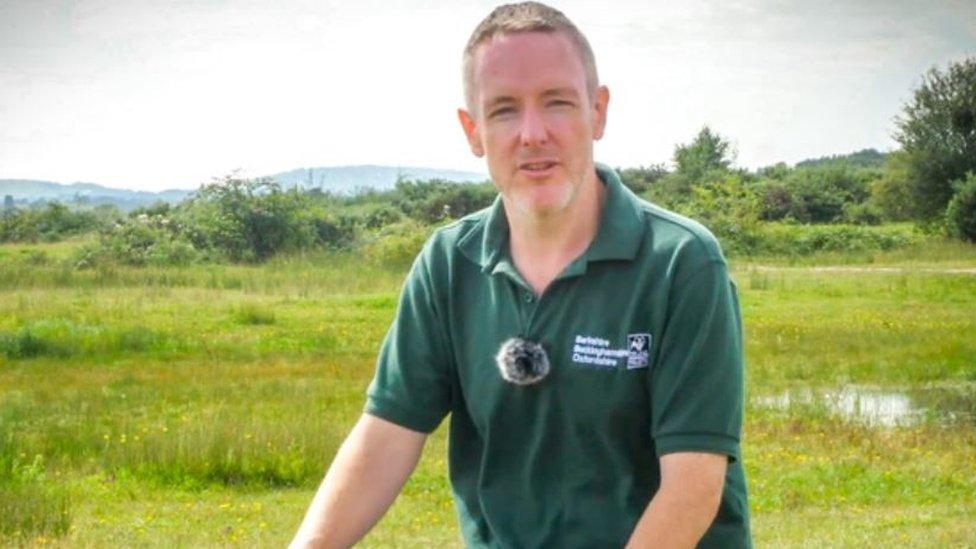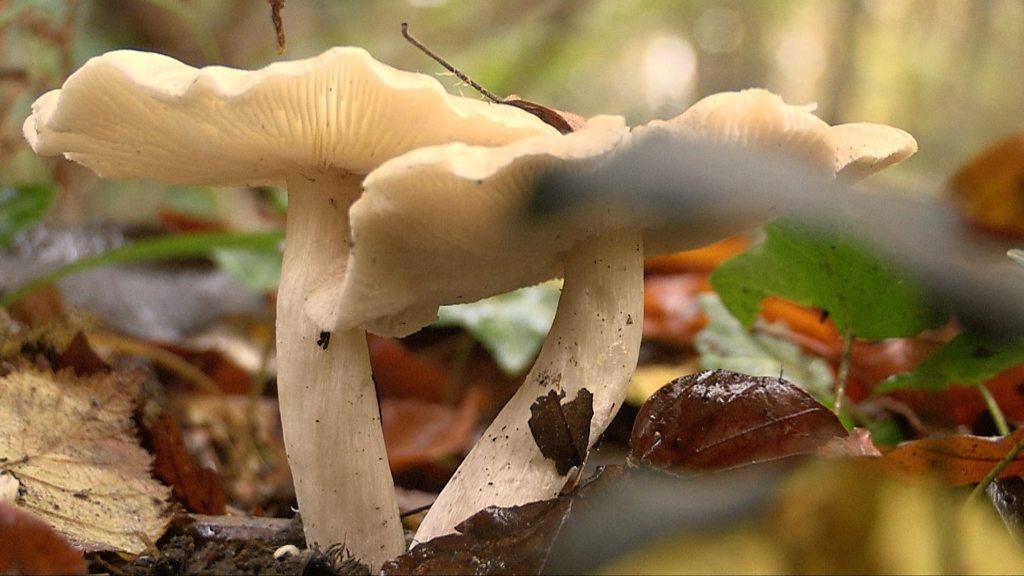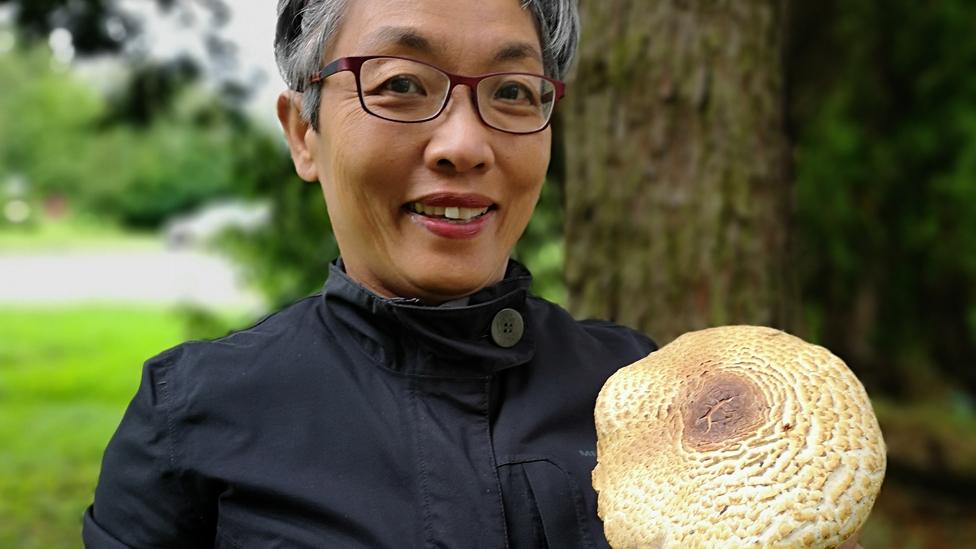Berks, Bucks & Oxon Wildlife Trust calls on mushroom foragers to stop
- Published

BBOWT says the fungi foraging is worse than ever this year
A wildlife charity has pleaded with people to stop picking mushrooms at its nature reserves.
The Berks, Bucks & Oxon Wildlife Trust (BBOWT) said fungi was being stripped by "gangs of foragers" on a commercial scale, damaging biodiversity.
The trust manages 86 nature reserves across the three counties and does not allow the activity on any of its sites.
It said it did not object to people foraging on any land where they have the landowner's permission.
Roger Stace, BBOWT's land manager, said: "Members of the public have reported seeing teams of people sweeping across the site with big carrier bags."
He said while the trust sees the problem every autumn, it was worse this year.
"We've certainly had more reports," he said, adding: "And I suspect that is partly down to the cost-of-living crisis. I also fear commercial foragers are selling stolen fungi to restaurants for money."
Mushrooms and toadstools are the reproductive part of the fungus and picking them can stop the fungus from releasing its spores to sustain a healthy population.

BBOWT land manager Roger Stace urged people to stop picking mushrooms at the Trust's sites
Mr Stace said: "We are lucky to have some incredibly rare fungus species on our nature reserves, and if people aren't trained they could be picking and destroying these rare species."
Mushroom foraging can also remove important sources of food for a host of wild animals and damage the delicate ecosystem of its reserves.
Most fungi share nutrients, water and energy with trees and other plants, forming a sprawling network so vast scientists have coined the phrase "Wood-Wide Web" to talk about their communication system, said the Trust.
"If you're going to take anything at our nature reserves, make it a photograph, and leave the beautiful wildlife for others to enjoy," urged Mr Stace.

Follow BBC South on Facebook, external, Twitter, external, or Instagram, external. Send your story ideas to south.newsonline@bbc.co.uk, external.
Related topics
- Published20 January 2020

- Published28 August 2019
